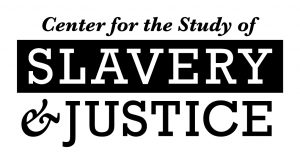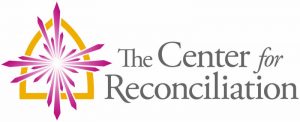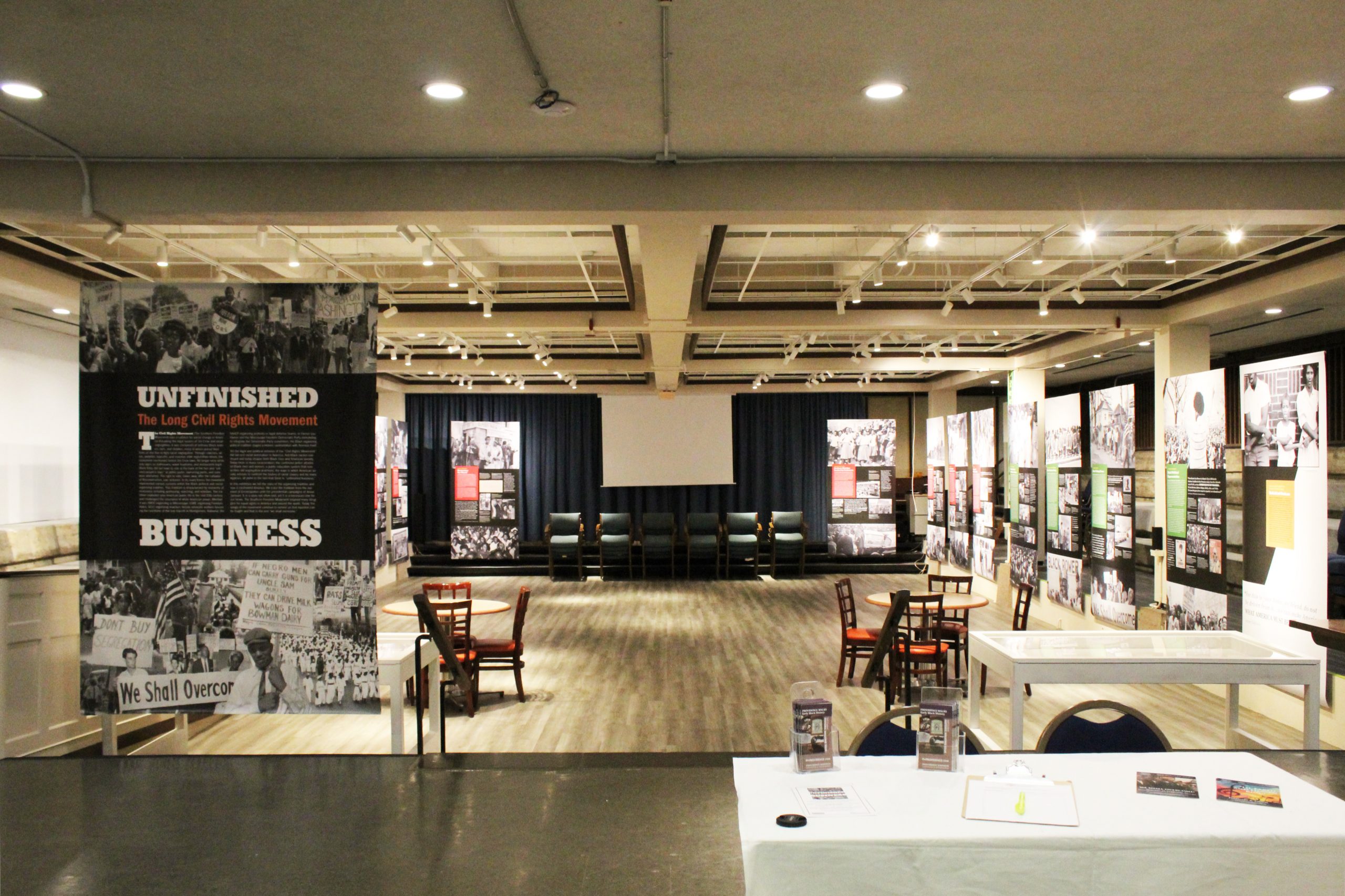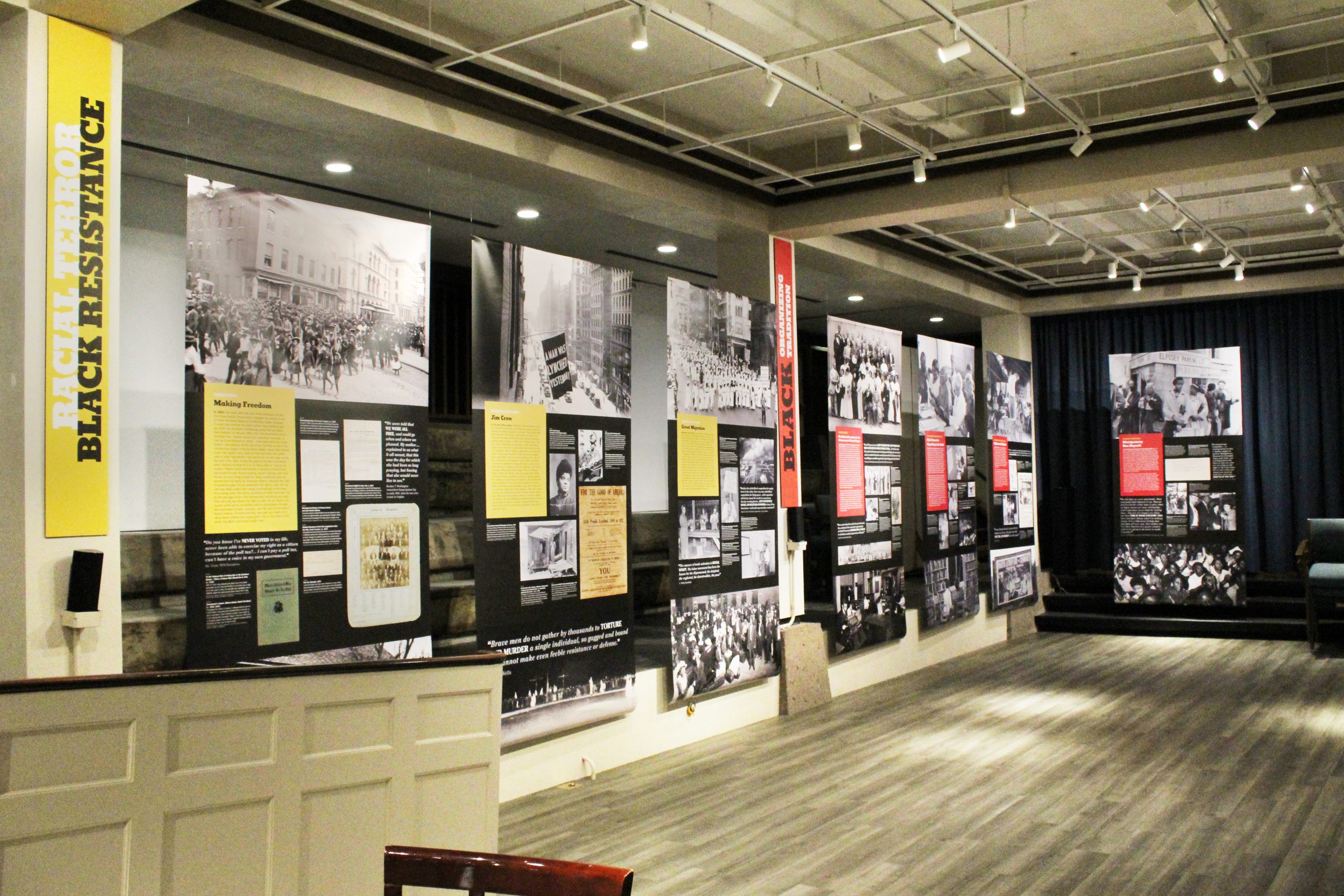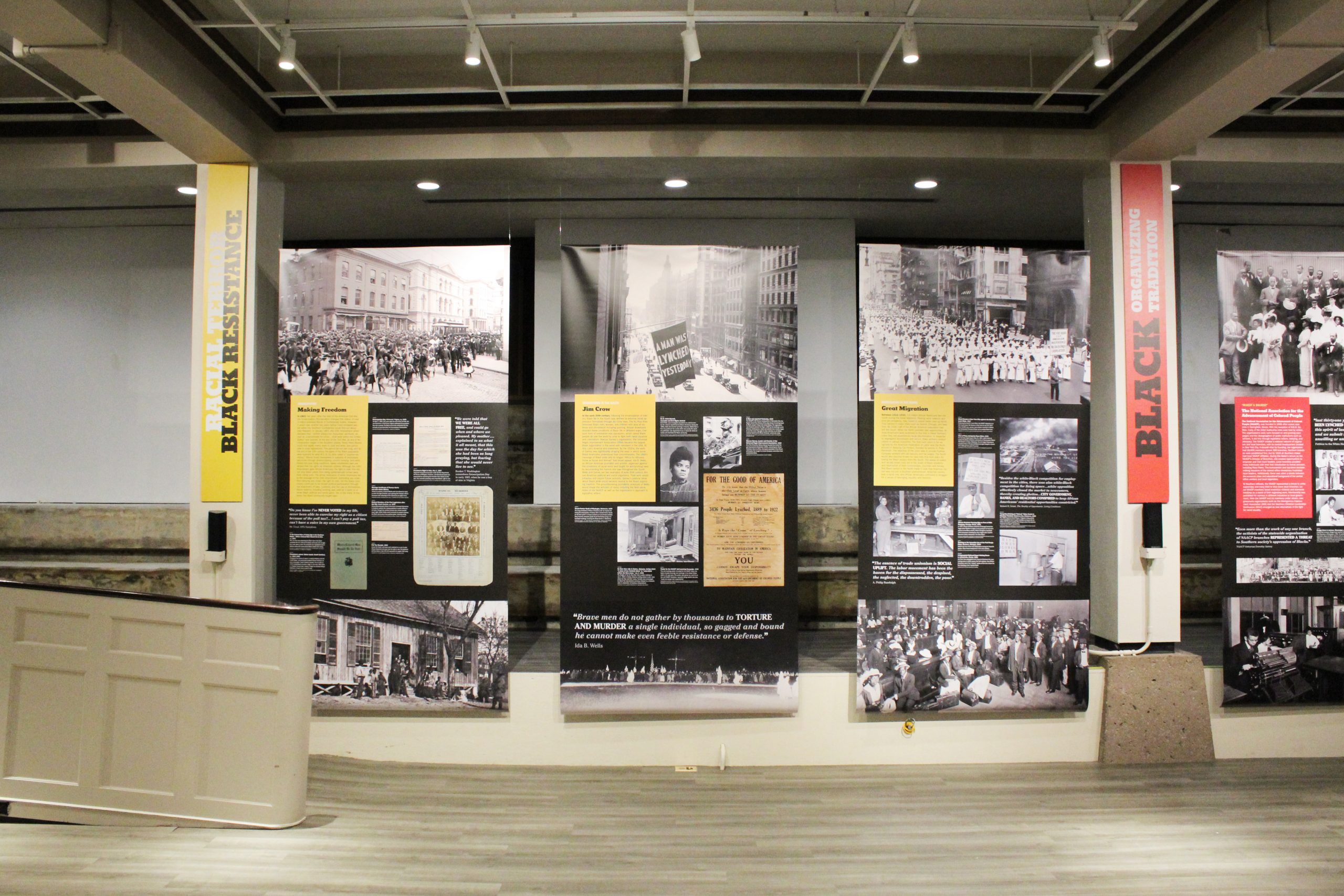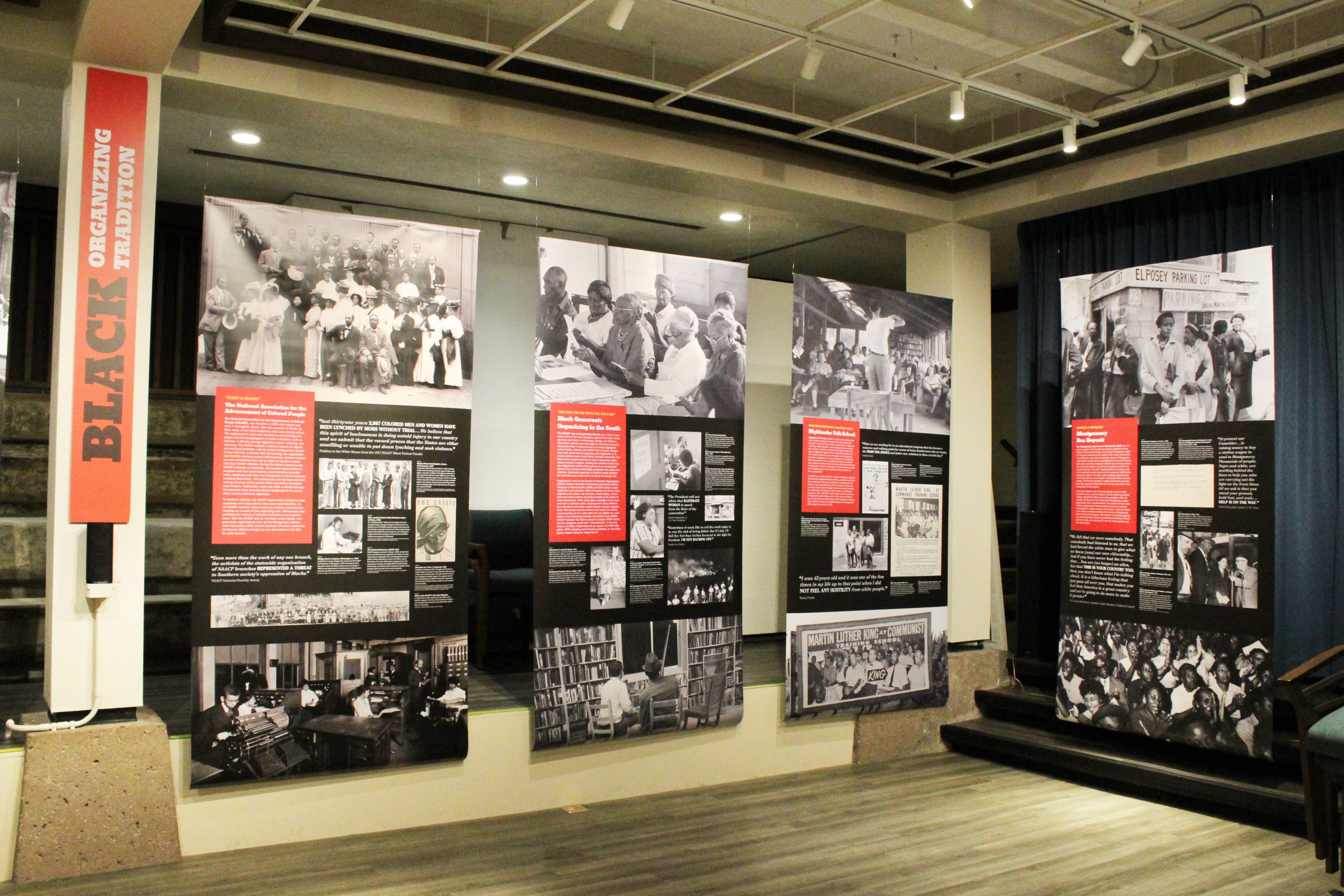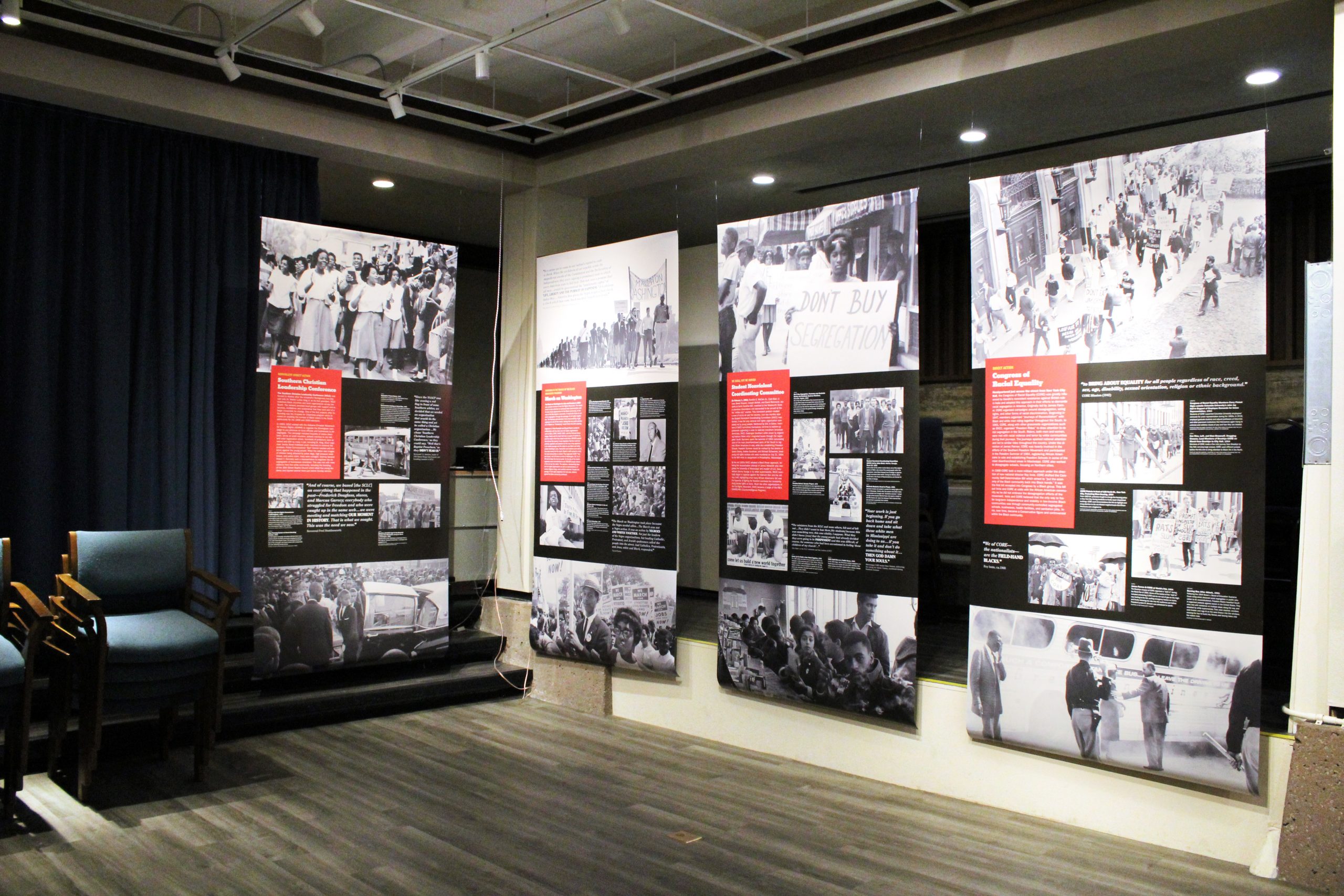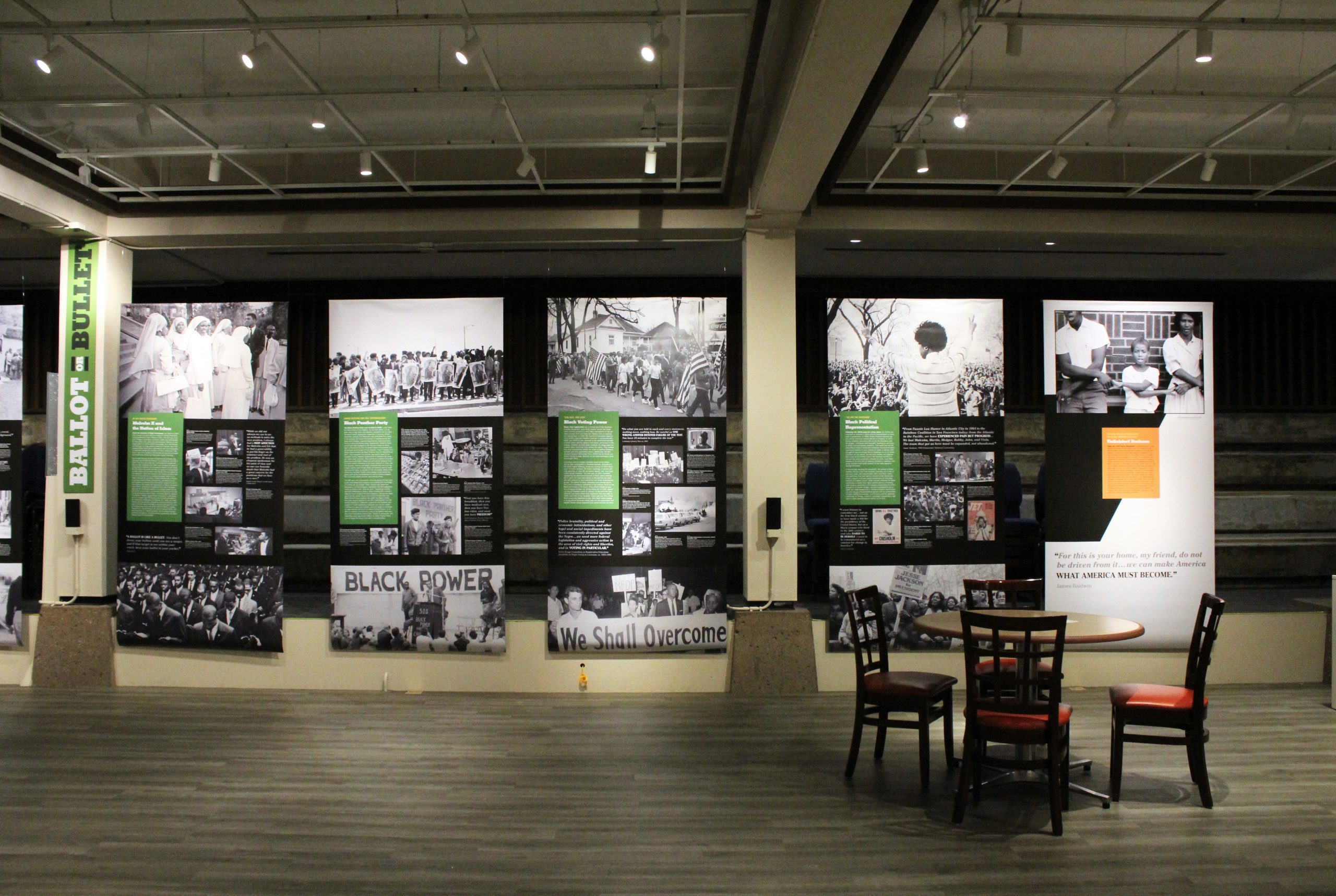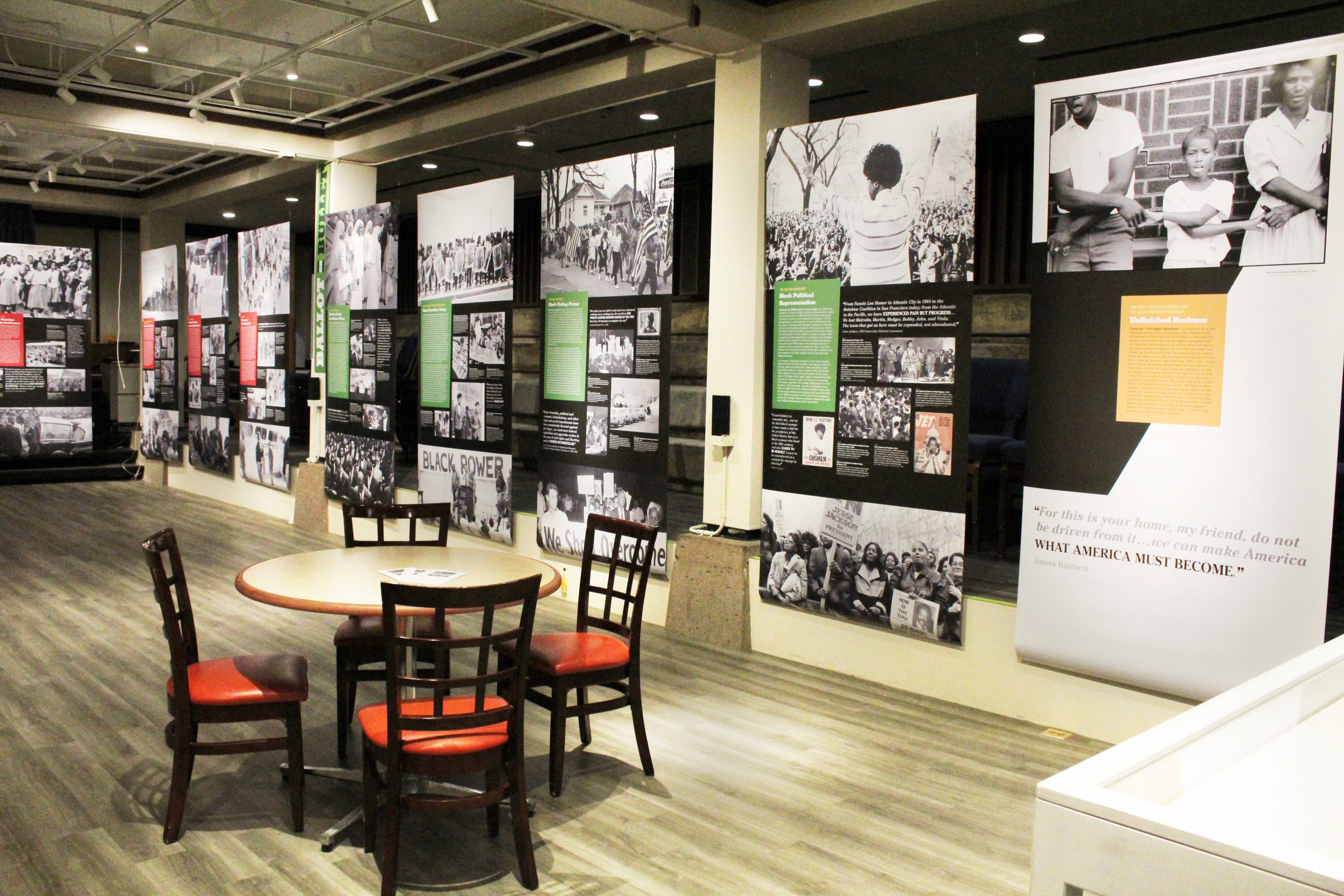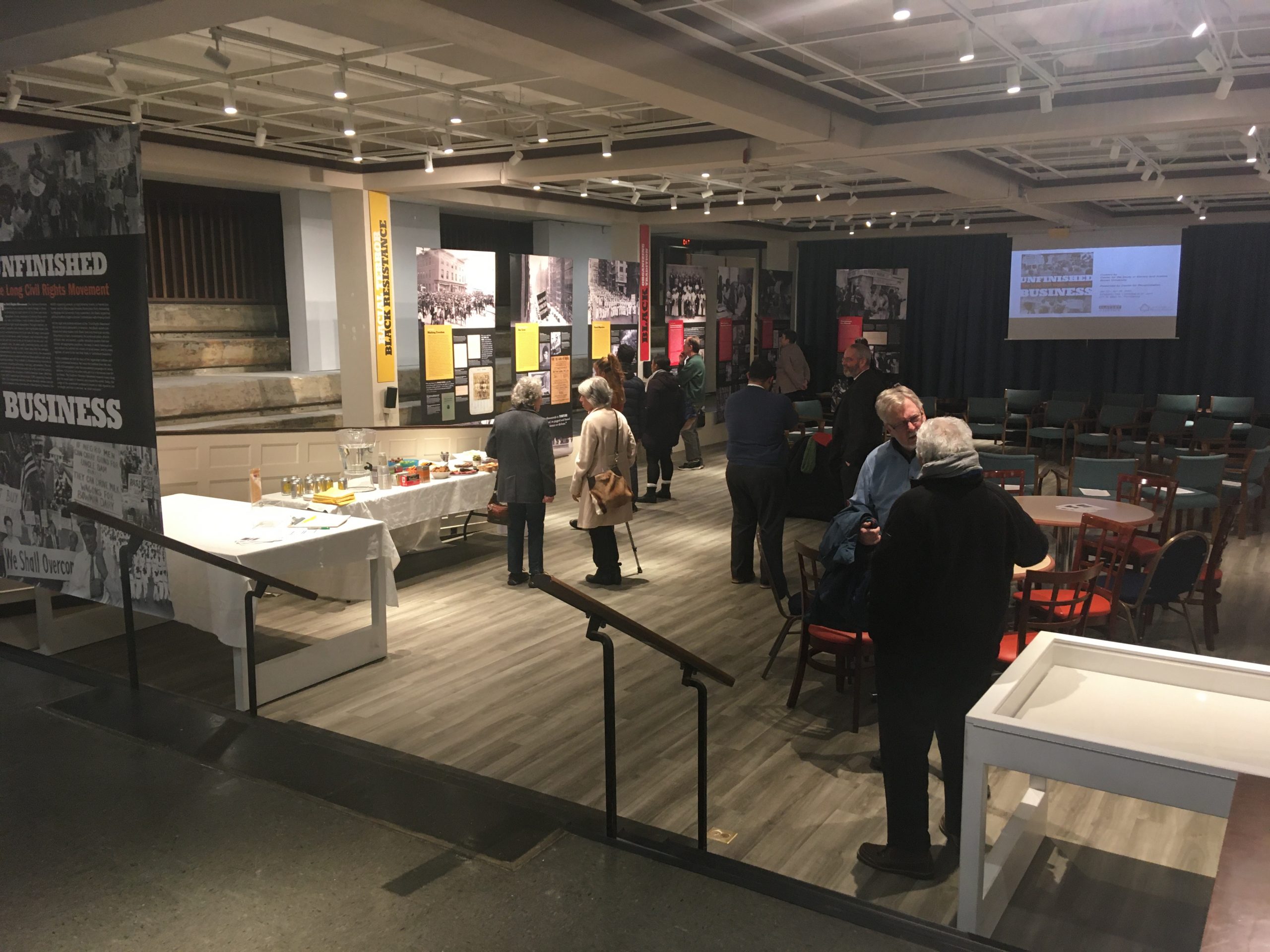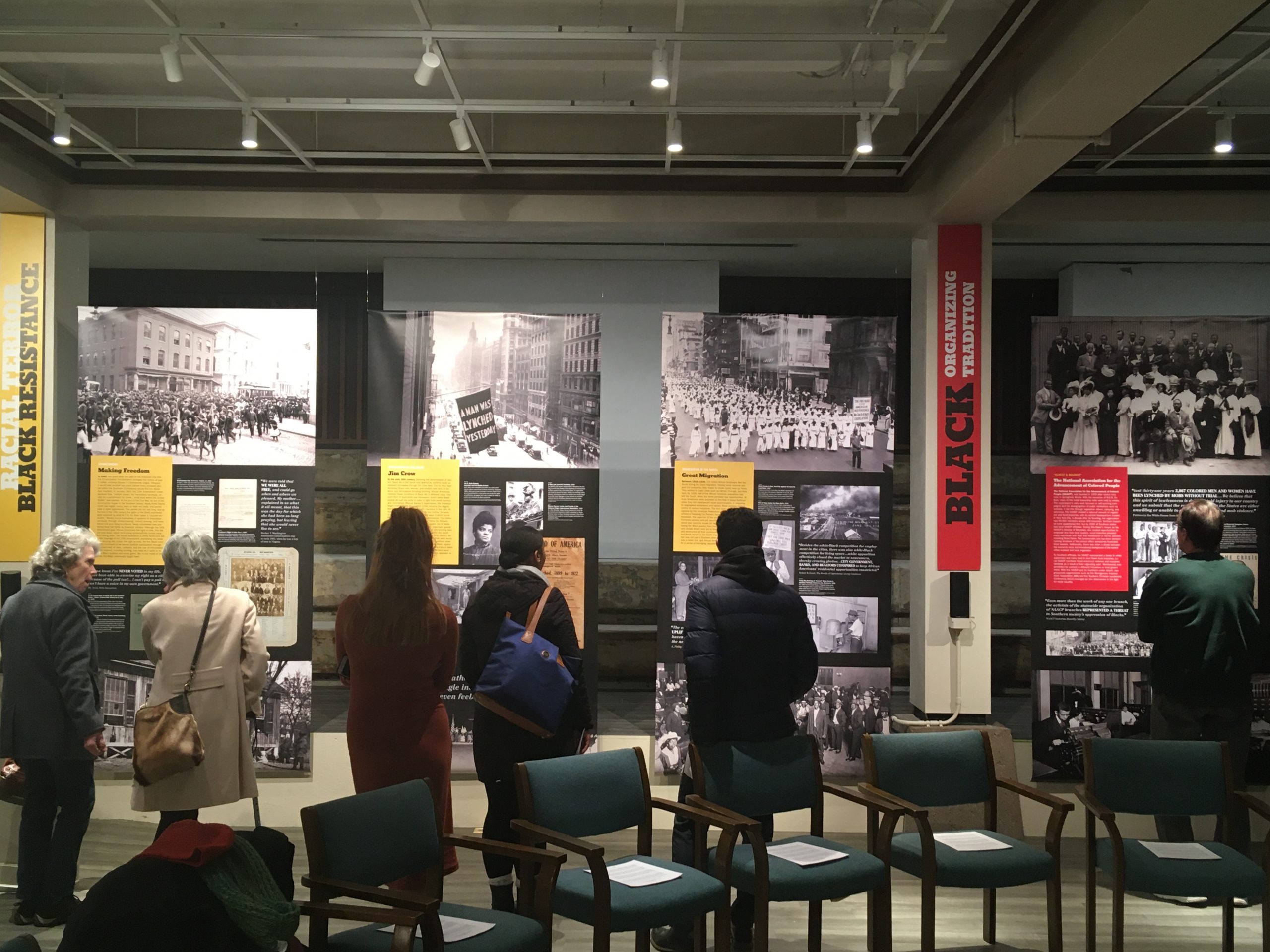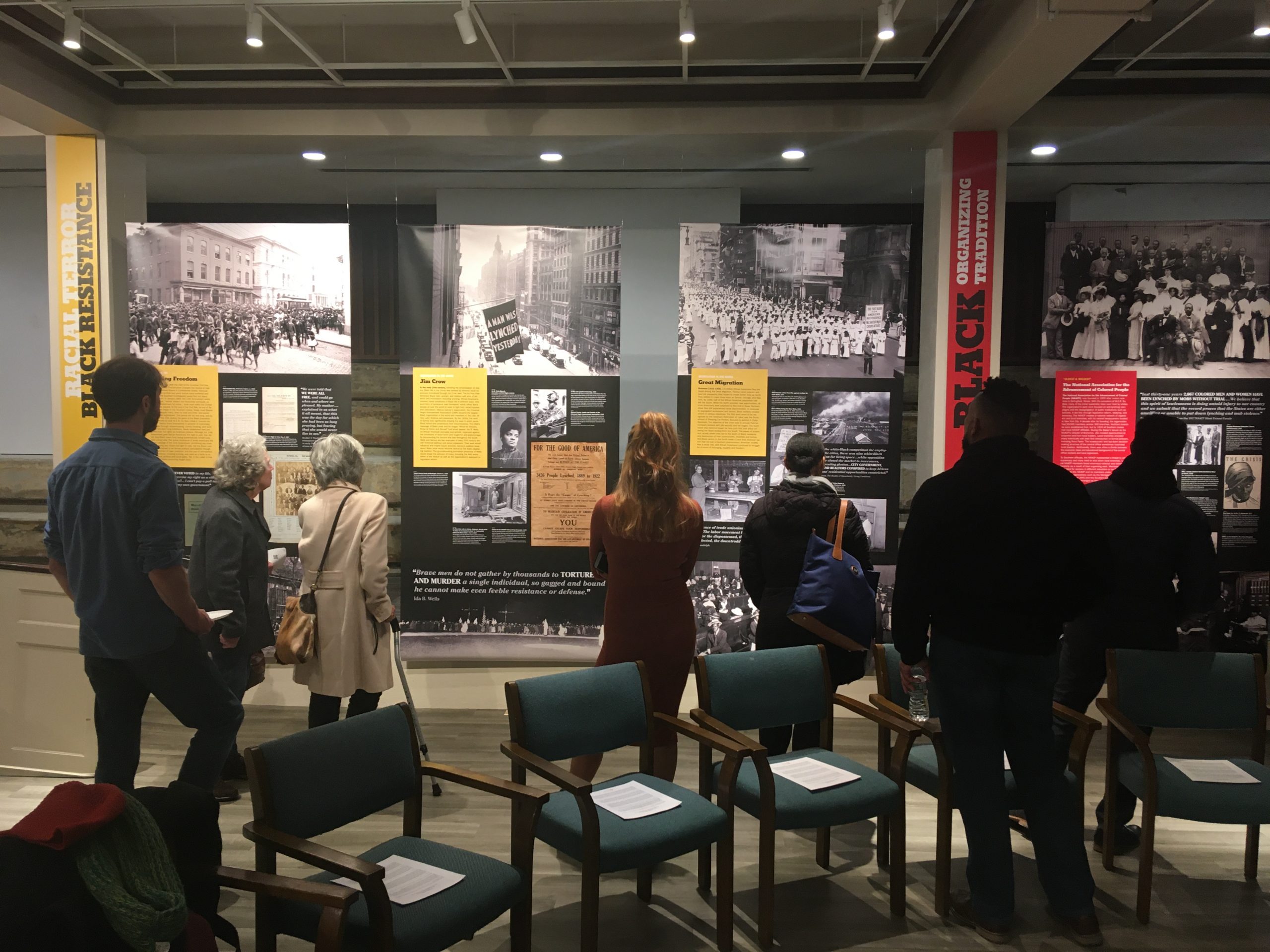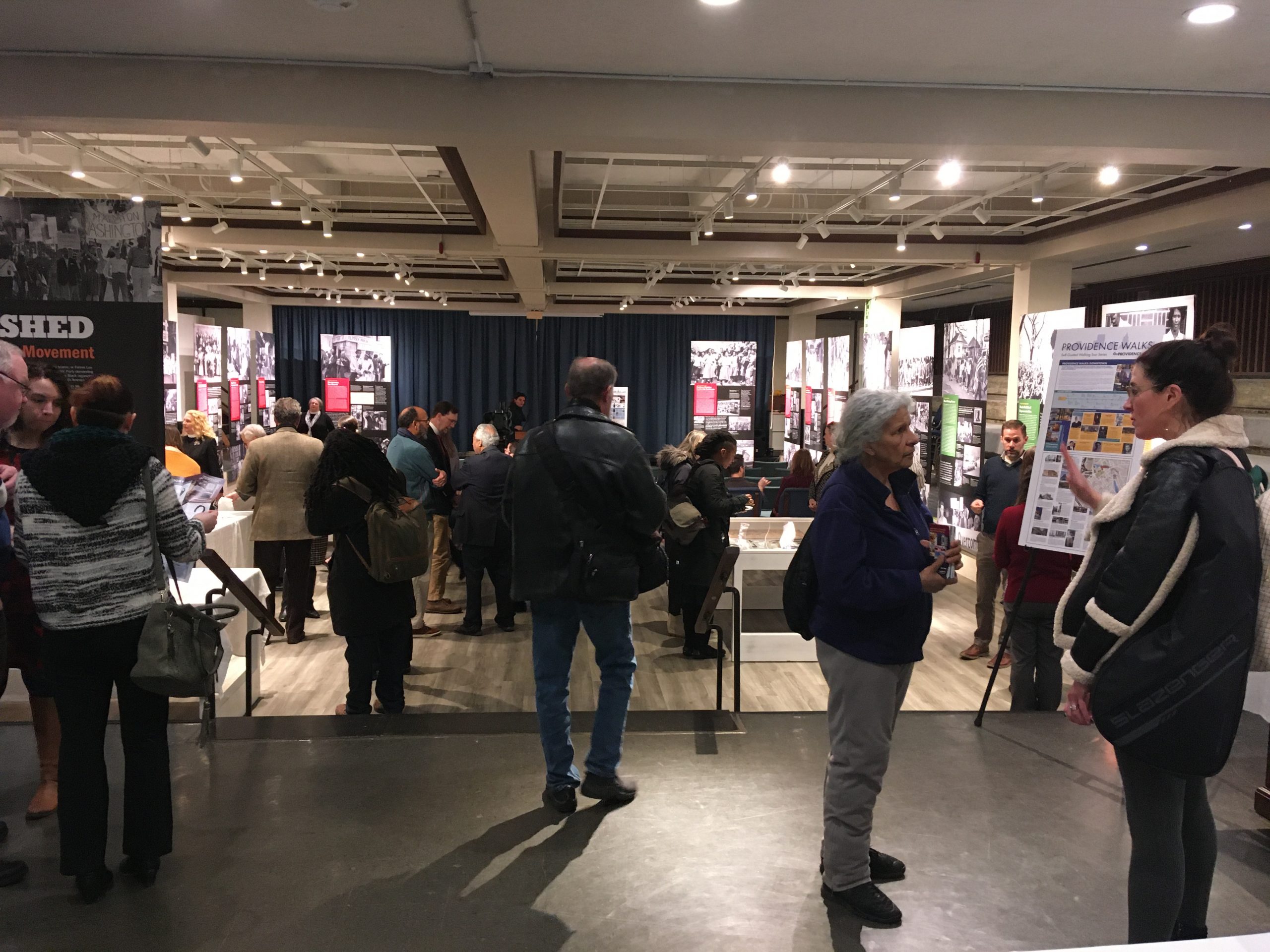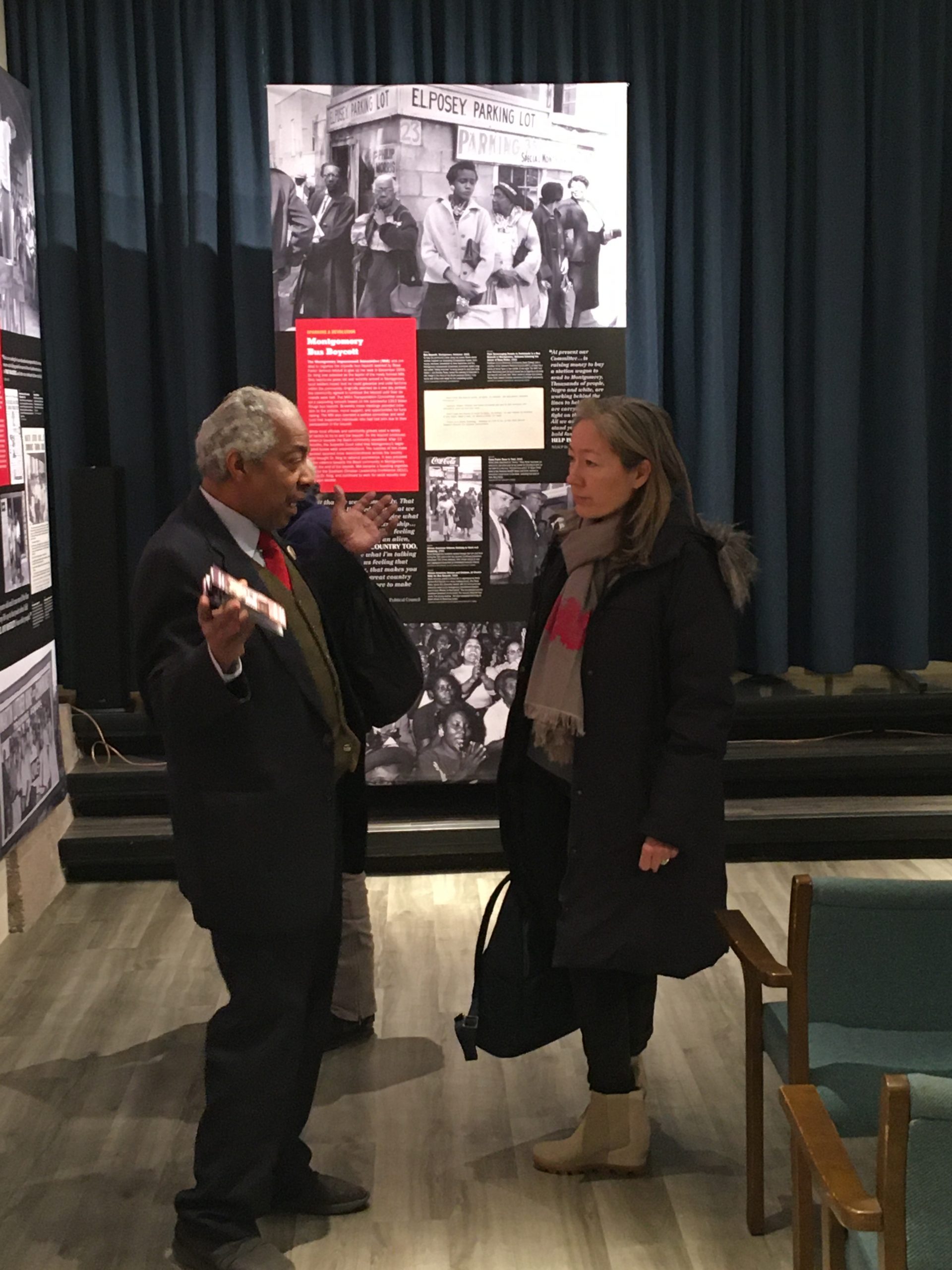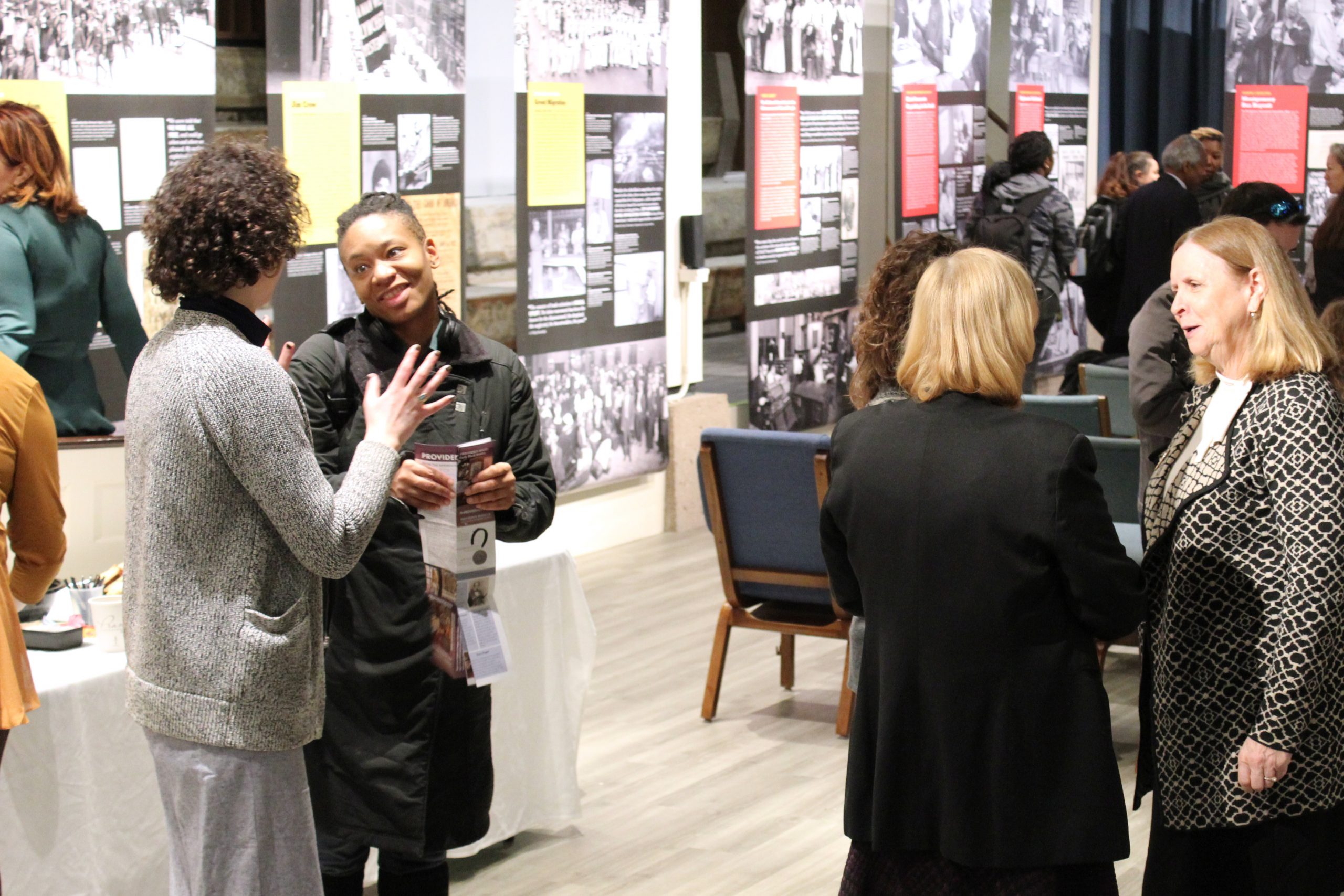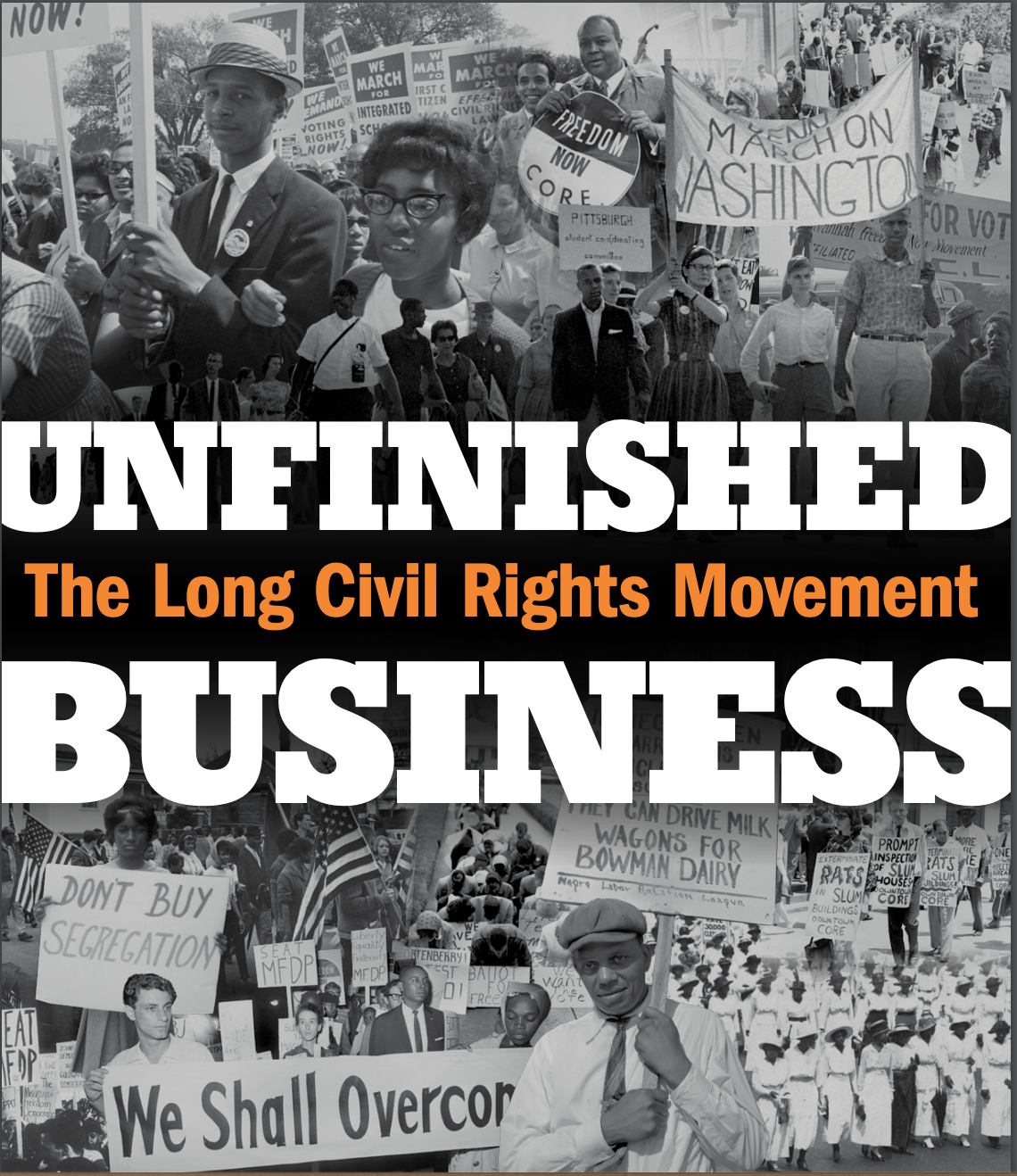
Welcome to Unfinished Business: The Long Civil Rights Movement, a virtual version of an exhibition curated by the
Center for the Study of Slavery and Justice at Brown University and presented in 2020 on loan to the
Center for Reconciliation in Providence.
We invite you to explore and enjoy the resources related to the exhibition below, and, of course, to contact us with any questions and comments. Thank you for visiting!
About
Unfinished Business: The Long Civil Rights Movement explores the Civil Rights Movement (The Southern Freedom Movement), a catalyst for social change in America that disrupted the legal system of Jim Crow and racial segregation. It was composed of ordinary Black women, men and children, many of whom placed their lives on the line to fight the laws of racial segregation. Unfinished Business tells the story of the relationship between the Black organizing tradition and the movement from the moment of emancipation until the presidential campaigns of Jesse Jackson. It is a story not often told, yet it is a necessary one for our times.
The Center for the Study of Slavery and Justice (CSSJ) curated and presented this exhibition at the John Nicholas Brown Center for Public Humanities and Cultural Heritage, Brown University, from September 2018 to February 2019. Opening on the 50th anniversary of the Black Student Walkout at Brown, Unfinished Business: The Long Civil Rights Movement was an important part of Brown’s Black Alumni Reunion held in September 2018 organized by the Inman Page Black Alumni Council. Along with the exhibition, the CSSJ organized Living Unfinished Business, a day of conversations in November 2018 expanding on the themes and topics of the exhibition, and produced a catalogue featuring the exhibition content as well as additional essays.
The Center for Reconciliation (CFR) was proud to present Unfinished Business in the Center’s exhibition hall, opening with a commemoration of Dr. Martin Luther King Jr.’s birthday on January 23, 2020. The exhibition welcomed around 200 visitors through March 8, 2020, at which point it closed due to the ongoing COVID-19 pandemic. The CFR is glad to share this gripping and timely exhibition through digital resources.
View the Gallery
Unfinished Business: The Long Civil Rights Movement, curated by the Center for the Study of Slavery and Justice, Brown, and installed at the Center for Reconciliation. Photos by Mary Kuan and Julia Renaud.
Read the Catalogue
The catalogue for Unfinished Business: The Long Civil Rights Movement, published by the Center for the Slavery of Slavery and Justice, includes all the text and images in the exhibition. In addition to pieces by Brown President Christina Paxson, CSSJ Faculty Director and Brown Professor Anthony Bogues, and exhibition curators Maiyah Gamble-Rivers and Shana Weinberg, it features essays by journalist, professor, and former SNCC activist Charles E. Cobb, Jr.; author, film producer, and Movement veteran Judy Richardson; Francoise Hamlin, Brown Professor of History and Africana Studies; award-winning author and journalist Herb Boyd; Providence community leader and nonprofit founder/CEO Pilar McCloud; and Barbara Ransby, University of Illinois, Chicago Distinguished Professor of African American Studies, Gender and Women’s Studies and History.
To read the catalogue, please click on this link.
Watch the Panels
On November 16, 2018, the Center for the Study of Slavery and Justice hosted Living Unfinished Business: The Legacies of the Civil Rights Movement, Memory, and Voting Rights Today at the John Nicholas Brown Center at Brown University, a day of conversations connected to the exhibition. Through a series of panels, Living Unfinished Business featured veterans of the Movement, photographers, community activists, lawyers and scholars to discuss the distinctive legacies of the Movement, the ways in which it is remembered and the present day threats to voting rights.
Session 1: Documenting and Remembering the Movement
- LeRoy Henderson
- Stephen Shames
- Sylviane Diouf
- Shana Weinberg, Chair
This panel brought together photographers of the Movement to discuss their work as well as contemporary efforts to interpret these images to help viewers understand this past.
Session 2: “One Man, One Vote”: Voting Rights Then and Now
- Malcolm Farmer
- Nse Ufot
- Prof. Anthony Bogues, Chair
This panel explores the voter mobilization efforts of the 1960s as well as the continued disenfranchisement of communities of color and the work organizations such as the New Georgia Project are undertaking to mobilize unregistered African American voters.
Session 3: Student Nonviolent Coordinating Committee (SNCC) Roundtable
- Judy Richardson
- Courtland Cox
- Geri Augusto
- Maiyah Gamble-Rivers, Chair
In this panel SNCC veterans speak about their experiences in the Civil Rights Movement as well as their continued work to archive, preserve, and share this history. To learn more about SNCC members and their work, please visit the SNCC Digital Gateway.
Acknowledgments
From the Center for the Study of Slavery and Justice, Brown University:
This exhibition was made possible through the generous support of the Center for Slavery and Justices’s sponsors including Brown’s Office of the President, Brown’s Dean of the Faculty and the William and Flora Hewlett Foundation. Special thank you to the many individuals who helped make the exhibition possible, including students and staff at the John Nicholas Brown Center for Public Humanities and Cultural Heritage, Jeanne Theoharis, Kate McMahon and Doug Remley. We would like to thank all of the catalogue contributors for their pieces. Sincere thanks to CSSJ student researcher Kaila Johnson, Center Coordinator Catherine Van Amburgh, and Visiting Scholar Zachary Sell who provided critical support of the exhibition and catalogue. We would like to acknowledge Charles E. Cobb Jr., Courtland Cox, Judy Richardson, Geri Augusto, and the Civil Rights Movement Veterans website (https://snccdigital.org/) for providing an invaluable resource about the history and legacy of the Movement. Thank you to Erin Wells, Mark Foster, and Elise Kirk for exhibition and graphic design and Ben Kaplan for installation support.
From the Center for Reconciliation:
We thank the Center for the Study of Slavery and Justice at Brown University for their generous loan of Unfinished Business, and for their support and collegiality on this and many other projects.
Thanks to Center for Reconciliation staff and volunteers past and present who made this exhibition possible, including Linda Grenz, Elon Cook Lee, Debra Sharpe, Julia Renaud, Traci Picard, Mary Kuan, and Mark Burnham.
